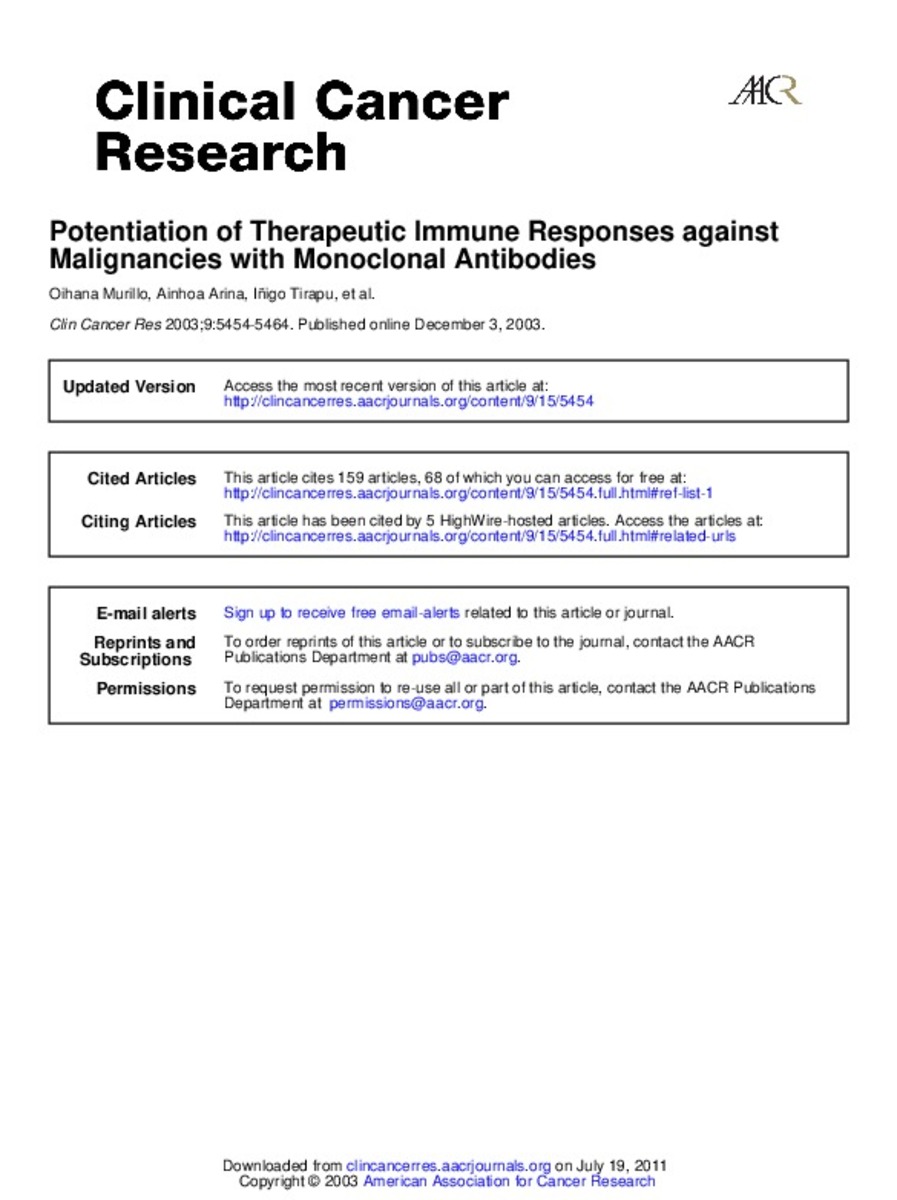Potentiation of therapeutic immune responses against malignancies with monoclonal antibodies
Palabras clave :
Antibodies, Monoclonal/therapeutic use
Neoplasms/immunology
Fecha de publicación :
2003
Editorial :
American Association for Cancer Research
Cita:
Murillo O, Arina A, Tirapu I, Alfaro C, Mazzolini G, Palencia B, et al. Potentiation of therapeutic immune responses against malignancies with monoclonal antibodies. Clin Cancer Res 2003 Nov 15;9(15):5454-5464.
Aparece en las colecciones:
Estadísticas e impacto
0 citas en

0 citas en

Los ítems de Dadun están protegidos por copyright, con todos los derechos reservados, a menos que se indique lo contrario.








